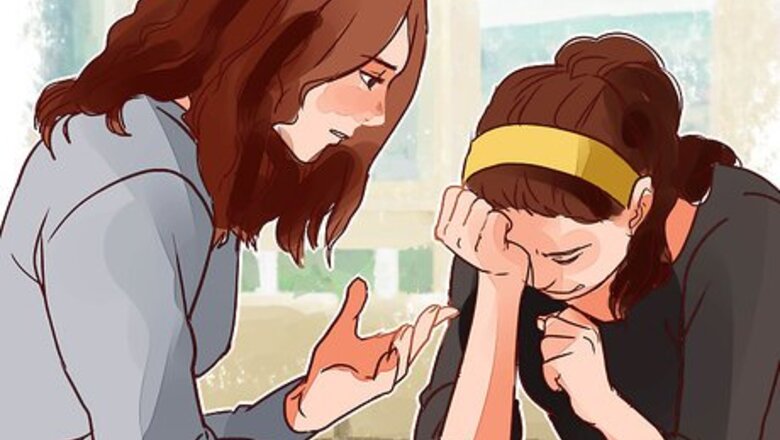
views
Addressing Your Child's Immediate Needs
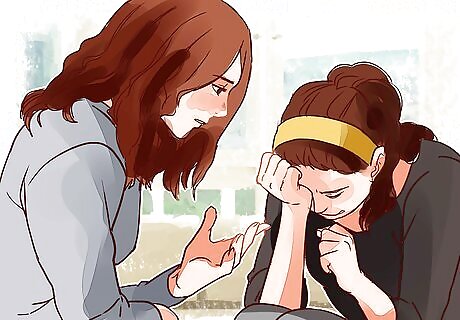
Offer your child verbal and emotional support. A child may feel scared or ashamed about what happened, and pressing them for details may traumatize them. Allow them to share as they wish and do not pressure them. They may be very reluctant to open up about any type of sexual abuse. When your child suggests possible abuse, be open to listening and responding with care. Listen attentively to what your child is saying. They are unlikely to directly state abuse. Give them time to talk about what is bothering them. Acknowledge their feelings of being hurt and feeling guilty. When your child talks with you about abuse, communicate with understanding and care. Consider responding by saying, "I'm sorry about what happened. I'm glad that it's ending. It's not your fault that it happened. I am here for you." Make sure that you do not respond with doubt or disbelief no matter what. This can add to your child’s trauma. Make sure to stay calm when you are around your child and express feelings of anger around other adults only. Expressing extreme emotions around the child may upset them further.
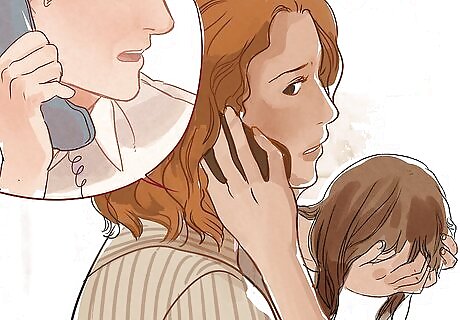
Reach out to professionals for help and safety. There are trained professionals available to assist by phone or in person. They can help you to find support and safety for your child and your family. In this crisis, it is important to understand what resources are available, and how to protect your child from future sexual abuse or trauma. Start by contacting a local sexual abuse center. Check to see if there is one in your county, or contact your local health and human services office or law enforcement to find local resources. Consider contacting the National Sexual Assault Hotline about what to do after learning that your child has been sexually abused. Go to https://www.rainn.org/ or call 1-800-656-HOPE Consider reporting abuse or getting information about how to protect your child after abuse happens. Contact the Childhelp National Child Abuse Hotline: https://www.childhelp.org/hotline/ or 1-800-4-A-CHILD Consider contacting your state's child abuse and neglect hotline. Your local child welfare agency may investigate the abuse and address any concerns you may have. If you or your child is in immediate danger of abuse or domestic violence, call 9-1-1 to file a report or to ensure your family's current safety.
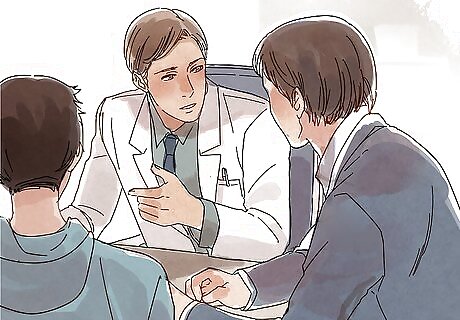
Seek medical care for your child. If the sexual abuse involved touching or physical contact, it is recommended to have a medical exam completed. Having this exam done is critical if you plan to press charges. A specialized medical exam conducted by specialists, such as a Sexual Assault Nurse Examiner, can be beneficial in order to address any signs of microscopic injury or infection. Talk with your primary care doctor to have an exam completed, or to get a referral for specialists with expertise in sexual abuse. Consider going the emergency room of the nearest children's hospital to address immediate needs or obtain a more comprehensive exam for your child.
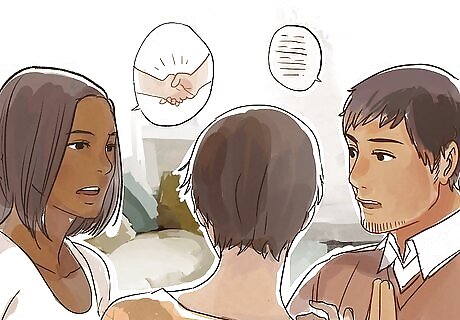
Provide a safe and supportive environment for your child. Establish a family safety plan to address boundaries, open up communication, and educate all your children in the family. Create a home and school environment that supports your children's sense of safety and resilience. Discuss with your family about concerns about sexualized behaviors. Teach them it's okay to talk about their feelings if they feel upset or worried about any sexualized behaviors. Provide education to your children about what is sexual abuse, both touching and non-touching forms. Teach children to understand their different body parts. Discuss boundaries of touching, particularly for young children, who need to understand that no one has a right to touch their private parts (except for medical care) and they do not have rights to touch anyone else's. Establish ground rules for hugging, kissing, and touching among family members. If a child feels uncomfortable around a certain relative or adult, discuss with that adult about boundaries of interacting with your child. Be an advocate for your child. Your child may not feel as comfortable as you about certain types of affection. Keep in mind that your child may begin to behave differently or have fears about things they never had before. It is important to do what you can to help make them feel comfortable. For example, if your child expresses that they are afraid to sleep alone, then let them sleep in your room. If they express to you that they need a hug out of the blue then give them a hug no matter where you are.
Providing Emotional Support
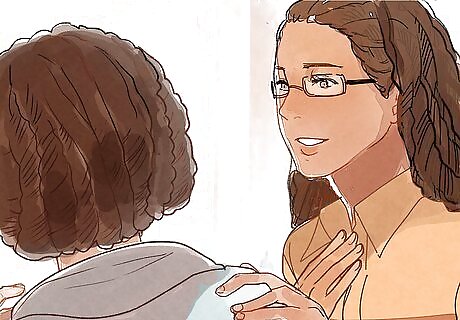
Believe in your child. It is highly unlikely that a child would disclose being sexually abused as a way to get attention. Even if what your child says seems impossible in your mind, understand that sexually abused children are more often abused by someone they know. Take their story seriously. The pressure to be silent is often overwhelming. They may have been “groomed” to believe that no one would believe them or take them seriously if they spoke up. Allow them the freedom to talk about what happened. Tell them that you believe in them. Say things like, "This must be hard to talk about. I believe you and want to help."
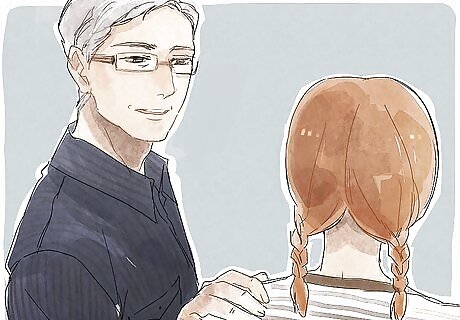
Be calm, supportive, and caring. While your reaction may be anger or denial, make efforts to remain calm and caring when knowing that your child has faced sexual abuse. Provide a sense of support and safety so that your child can continue to feel safe when talking to you. Spend more time with your child. Give them attention so they know they are cared for. Accept that your child may act differently than before. Traumatic events have an effect on your child's behavior. Be understanding within the rules of the family. Be sensitive to your child's emotional needs. Be respectful of their wishes.
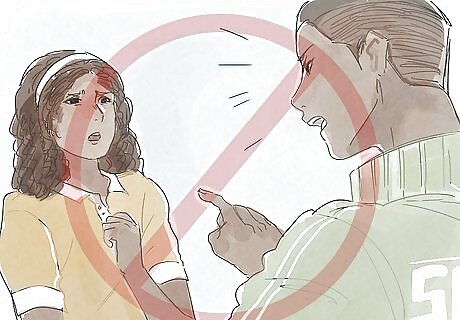
Be willing to face the problem. Ignoring or repressing the problem may seem at first an easier solution that facing the realities of sexual abuse, but it can have long-term negative effects on your child. Face the problem honestly and respectfully. Avoid blaming yourself or your child. Place responsibility appropriately on the abuser. Make protecting your child and your family a priority over your own concerns about how this may look to others. Your child's safety and security is greater than what people may think. Keep in mind that not everyone needs to know what is going on. Come up with a strategy for how to respond to questions about what is happening with your family and decide how you will let people know that you need their support.
Finding Professional Help
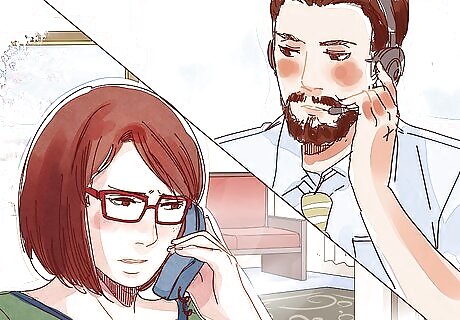
Take action to establish safety through professional help. While many children and families avoid disclosing sexual abuse to authorities, it is important that the perpetrator be accountable for his or her actions. By failing to disclose, you may continue to place your family or others at risk. Contact any local support agencies or human services departments first to find local resources. If you cannot find local resources, then contact the Childhelp National Child Abuse Hotline to talk with a crisis counselor. They can help you to discuss options to ensure your child's safety and supports in your area. Contact 1-800-4-A-CHILD (1-800-42204453) or https://www.childhelp.org/hotline/ Consider making a report to your state's child abuse and neglect hotline. They can help to best evaluate the safety of the situation. Identify possible domestic violence shelters in your area if you and your child are still in danger. There may be a women's shelter in your area that also takes children. You can search for local shelters here: https://www.womenshelters.org/
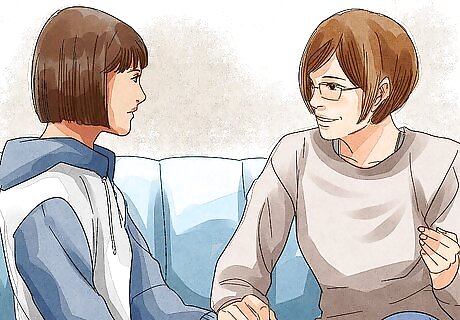
Connect your child to counseling. After the initial shock or trauma of learning that your child has been abused, it is important to provide ongoing support to your child. Sexually abused children are more likely to feel worthless, shame, low self-esteem, and fear around others. Help them to heal by connecting them to a counselor. Find a counseling center in your area that focuses on children and trauma. See if they provide free or low-cost options. They may be able to make referrals to appropriate counselors. Identify resources in the community via child welfare agencies, your child's school, or your place of worship. Talk with a school counselor, a social worker, or your religious leader about counseling options. Find counselors who are covered under your health insurance plan. Focus on counseling options that address trauma and abuse. There may be treatment options that include individual or family therapy, along with support groups.
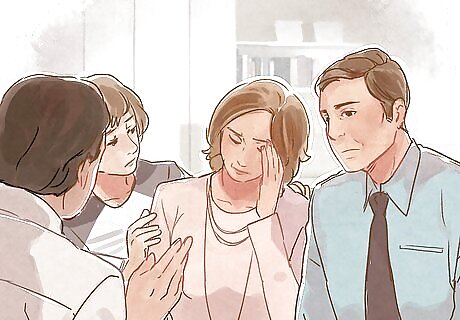
Find support for yourself and your family. As a parent, it can be difficult to work through your feelings after finding out that your child has been abused. Make sure to take care of yourself, and find supports that can help you and your family process your feelings. It's important to care for yourself and your family to better care for your child. Consider talking to a counselor one-one-one in order to process your own feelings about the situation. Look into counseling for your other family members as well. This may be beneficial, so you don't have to worry how your child might react. Find trusted friends, family, or support groups in your area. While you may not wish to disclose what happened to many people, it is important to find a support system that you can depend on. There are support groups online or in your community. Consider reaching out to Mothers of Sexually Abused Children (MOSAC) for resources: http://www.mosac.net/ Set aside time for self-care and activities that help to de-stress. Both you and your child will be able to heal better when your mind, body, and spirit are calm and more relaxed.
Understanding the Signs of Possible Sexual Abuse

Learn the different types of child sexual abuse. Child sexual abuse involves sexual activity with a minor. It includes both touching and non-touching activity. Examples of touching activity: physically touching a child's genitals for pleasure, making a child touch someone else's genitals, playing sexual games, having sex by using objects or body parts inside the vagina, mouth, or anus for pleasure. Examples of non-touching activity: showing or sharing pornography to a child, exposing an adult's genitals to a child, photographing a child in sexual poses, obscene sexual communication with a child via phone, text, or digital interaction.

Assess possible signs and symptoms of sexual abuse. Be aware of your child's changes in behavior. Take note of the following signs and symptoms. One symptom alone may not likely be a sign of sexual abuse. Understand that it may be combination of these signs. If you notice any situation, talk with your child about any concerns. Acting in inappropriately sexual way with toys or objects Having nightmares, sleep problems or regressive behaviors like bedwetting Becoming withdrawn or very clingy Becoming unusually secretive or distrustful of adults Sudden unexplained personality changes, mood swings, outbursts of anger Unaccountable fear of particular places or people Loss of appetite or changes in eating habits Use of new words for body parts or adult sexual behavior with no identifiable source Talk of a new, older friend and unexplained money or gifts Self-harm activities such as cutting or burning Physical signs such as an unexplained soreness or bruises around genitals or mouth, sexually transmitted diseases, and/or pregnancy A desire to run away Avoidance of certain children, adults, or relatives
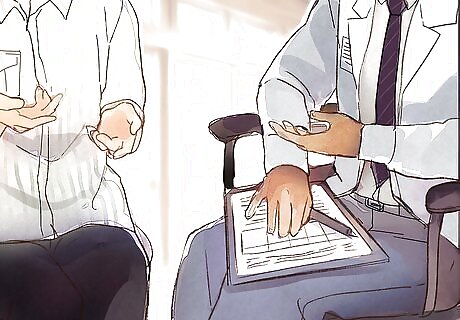
Seek advice from professionals about any concerns. Don't feel like you and your child have to go through this alone. Many families face similar challenges. By being open, you will more likely find healing for your child. Consider talking a school counselor at your child's school about any concerns regarding abuse. Understand that if sexual abuse is still going on, then some professionals who are mandated reporters, such as school staff or healthcare professionals, will be required to report to Child Protective Services. Talk with your local child welfare agency if there is continued abuse. Contact your state's child abuse hotline. Call the Childhelp National Child Abuse Hotline. The calls are anonymous and staffed by professional counselors. Reach out by calling 1-800-4-A-CHILD (1-800-42204453) or https://www.childhelp.org/hotline/




















Comments
0 comment